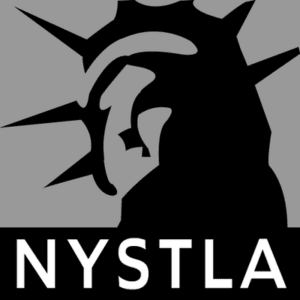If you’ve been in a rideshare accident, it’s normal to feel overwhelmed and confused. Whether you’re a driver, passenger, or pedestrian, the aftermath can be complicated. Insurance policies, liability issues, and legal steps can feel like a maze. But you don’t have to face this alone. Our law firm understands your stress and is here to help you navigate the process and achieve a good outcome.
Unique Challenges Drivers Face in Rideshare Accidents
If you’re driving for a rideshare service, you might think your personal car insurance covers accidents while you work. This isn’t always true. Liability can get complicated for drivers. In a rideshare accident, the company’s insurance may apply, but only in certain situations. If the driver is online and ready to accept a ride but hasn’t picked up a passenger, the coverage may be limited. This might not be enough, depending on the accident’s severity.
When the driver is actively transporting a passenger, the rideshare company’s insurance usually offers more coverage. However, if the driver’s negligence caused the accident, you might have to file a claim against their personal insurance. Navigating this insurance landscape can be tricky. You may not know who is responsible for medical bills or damages.
As a driver in a rideshare accident, it’s important to consult with an experienced attorney. They can help you understand which insurance applies, protect your rights, and pursue compensation for your injuries, lost wages, or property damage.
What Passengers Need to Know About Rideshare Accident Claims
Passengers in rideshare accidents face a different situation. While you’re generally less liable since you’re not driving, you don’t automatically get compensation without hurdles. As a passenger, you can usually file a claim with the rideshare company’s insurance. If the driver’s negligence caused the accident, the insurance may try to limit coverage based on factors like whether the driver was online and available or actively transporting someone.
A key factor is whether the accident happened while the driver was working or off-duty. If the driver was on the job, the rideshare company’s insurance should cover medical expenses and damages. If the driver was off-duty, you may need to use their personal insurance, complicating the claims process. In some cases, you might also file a third-party claim if another driver caused the accident.
As a passenger, it’s crucial to consult a legal professional. They can investigate the accident, identify who is responsible, and help you get compensation for medical bills, lost wages, and emotional distress.
Pedestrians and Rideshare Accidents: How Claims Work
If you’re a pedestrian hit by a rideshare vehicle, your situation may seem less clear. The driver may be at fault, or another driver could cause the collision. In either case, you may need to seek compensation through the insurance policies of those responsible. Pedestrians often suffer more severe injuries due to a lack of protection. If a rideshare driver is at fault, the company’s insurance might cover medical expenses, pain and suffering, and other damages. This is especially true if the driver was working at the time.
However, getting compensation as a pedestrian can be complicated. Even if the rideshare driver is at fault, you may face challenges proving liability or dealing with insurance companies that want to minimize payouts. If another driver is responsible, you might have to file a claim against that driver’s insurance. In some cases, you might also file a lawsuit if the insurance coverage is not enough.
Since proving liability can be tough for pedestrian accidents, it’s important to have an experienced attorney. They can gather evidence, identify responsible parties, and help you secure the compensation you need for medical expenses, lost wages, and other damages.
How Insurance Coverage Affects Your Rideshare Accident Claim
Understanding how insurance works is key in a rideshare accident claim. The type of insurance coverage available often determines how much compensation you can receive. Whether you’re a driver, passenger, or pedestrian, knowing how insurance applies to your case is vital.
Rideshare companies like Uber and Lyft provide insurance for their drivers, but the amount depends on the driver’s status at the time of the accident. If the driver is offline, there’s no coverage from the rideshare company. If they are online but haven’t accepted a ride, the coverage is limited. If they are transporting a passenger, the coverage is usually broader.
Drivers often have personal car insurance, which may cover their medical expenses or property damage. If the driver is at fault, other parties, such as passengers or pedestrians, may need to rely on the rideshare company’s insurance for damages. For passengers and pedestrians, figuring out which insurance policies apply is essential for pursuing compensation for injuries. Rideshare companies usually offer higher liability limits, which can help passengers and pedestrians get the compensation they need.
Related Videos
How should I choose a personal injury attorney for my claim?
Insurance companies dirty tricks
The Importance of Gathering Evidence in Rideshare Accident Claims
Gathering evidence is key to a successful rideshare accident claim. Whether you are a driver, passenger, or pedestrian, strong evidence can greatly affect your case. This evidence may include accident scene photos, witness statements, medical records, and details from the rideshare app. For drivers, the rideshare company can access data showing the driver’s location and app status during the accident.
For passengers and pedestrians, documenting the accident is vital. This includes vehicle details and any injuries. Eyewitness accounts can also help prove fault. The more information you provide to your lawyer, the better they can represent you. An experienced attorney can help collect this evidence and use it effectively for your claim.
The Role of Comparative Negligence in Rideshare Accidents
In some rideshare accidents, multiple parties may share blame. This is where comparative negligence comes in. In New York, this means the court can assign fault percentages to each party involved. If you are found partially at fault, your compensation may decrease based on your assigned percentage.
For instance, if a pedestrian jaywalks and is hit by a rideshare vehicle, they might be seen as partly responsible. In such cases, having a lawyer who can argue that the other party is more at fault is crucial. The law can be complex, so it’s important to work with a knowledgeable attorney to ensure fair treatment and avoid unfair penalties.
Understanding the Potential for Litigation in Rideshare Accident Cases
Not all rideshare accident claims can be settled with insurance companies. Sometimes, litigation is necessary to get the compensation you deserve. If negotiations with the rideshare company’s insurer fail, your lawyer may suggest filing a lawsuit. This process includes steps like discovery, depositions, and court hearings. When a driver’s negligence is clear or if the insurance company won’t offer a fair settlement, litigation can be the best choice. However, not every case requires going to court. Many claims can be resolved through negotiations. Still, having the option of litigation means you have all the legal tools necessary to seek justice.
Why Choose The Nicotra Law Firm, PC for Your Rideshare Accident Case
Handling a rideshare accident claim can feel overwhelming. It’s crucial to have a trusted legal advocate to help you get the compensation you deserve. At The Nicotra Law Firm, PC, we are dedicated to guiding our clients through every step. This includes understanding insurance coverage, gathering evidence, and pursuing fair settlements or litigation.
If you’ve been in a rideshare accident, reach out to us. Our experienced team is here to support you during this challenging time. Contact us today to discuss your case and take the first step toward getting the compensation you deserve.








